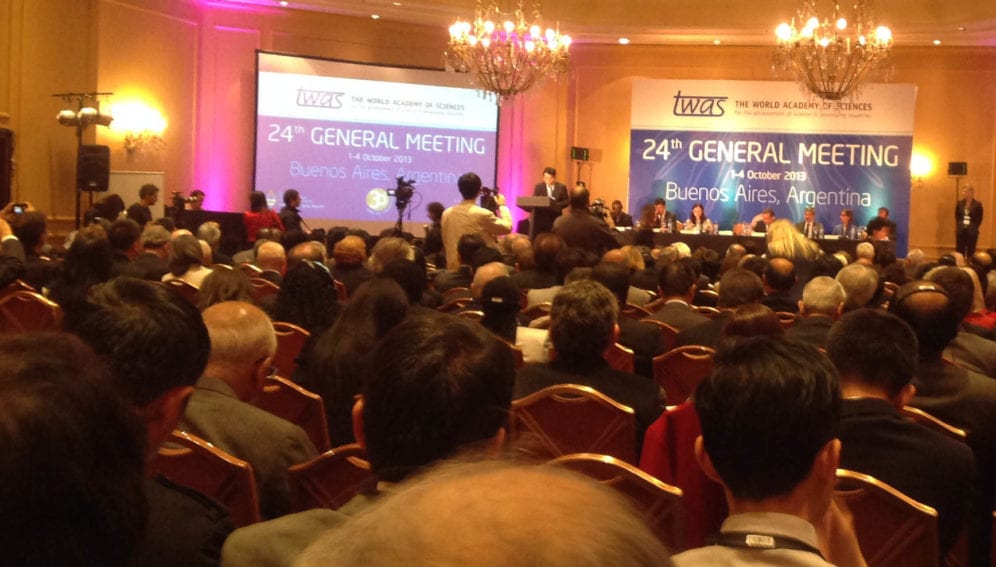By: Cecilia Rosen
Send to a friend
The details you provide on this page will not be used to send unsolicited email, and will not be sold to a 3rd party. See privacy policy.
[BUENOS AIRES] Science academies must play a greater role in pursuing innovative solutions for problems in developing countries, according to members of The World Academy of Sciences (TWAS), who are holding their annual meeting in Buenos Aires this week (1-4 October).
The first day of activities included an opening ceremony, led by Bai Chunli, president of TWAS, and Lino Barañao, Argentina's minister of science, technology and productive innovation. Several prizes were awarded to distinguished researchers.
In a meeting with the press, Bai said the organisation needs to attract young scientists and enhance collaboration between countries to improve training opportunities.
“Today humanity faces global challenges that cannot be met by individual countries… Countries in the developing world must solve these issues in order to achieve sustainable development in the future — and collaboration is indispensable.”
Yasutaka Moriguchi, Japan's ministry of education, culture, sports, science and technology
The researcher, who also leads the Chinese Academy of Sciences, told SciDev.Net that TWAS faces two additional challenges: including greater numbers of female researchers — who currently represent only ten per cent of its membership — and increasing the number of countries from 21 to more than 100 in the coming years.
Derek Hanekom, minister of South Africa's Department of Science and Technology, said the organisation's role of bringing scientists together and finding solutions to the problems in developing countries is vital, but differences between countries must be addressed.
There is great unevenness among TWAS's members in terms of resources and capacities, so "it is very important that those that have some advantages or are slightly stronger take greater responsibility to strengthen TWAS", he said.
A senior advisor at the ministry of education, culture, sports, science and technology in Japan, Yasutaka Moriguchi, highlighted the importance of South-South collaboration.
"Today humanity faces global challenges that cannot be met by individual countries in issues such as global warming and environmental pollution. Countries in the developing world must solve these issues in order to achieve sustainable development in the future — and collaboration is indispensable," he said.
Latin American countries, where the average investment in science and technology is 0.5 per cent of Gross Domestic product (GDP), need to increase the private sector's participation, said Gabriel Casaburi, lead specialist at the Inter-American Development Bank's Competitiveness and Innovation Division, during the afternoon's ministerial session.
Barañao, host of the event, said he thought the Latin American countries now have a unique opportunity to showcase their efforts in science policy over the last decade.
Argentina recently announced that 1,000 scientists have already returned to the country as part of a strategy to renew its research system. At the same time, the country has created a new science ministry and investment in science and technology has increased from 0.39 per cent to 0.51 per cent of GDP during the last six years. Argentina also witnessed a six-fold increase in scientists' salaries and an increase in the number of full-time scientific jobs.














